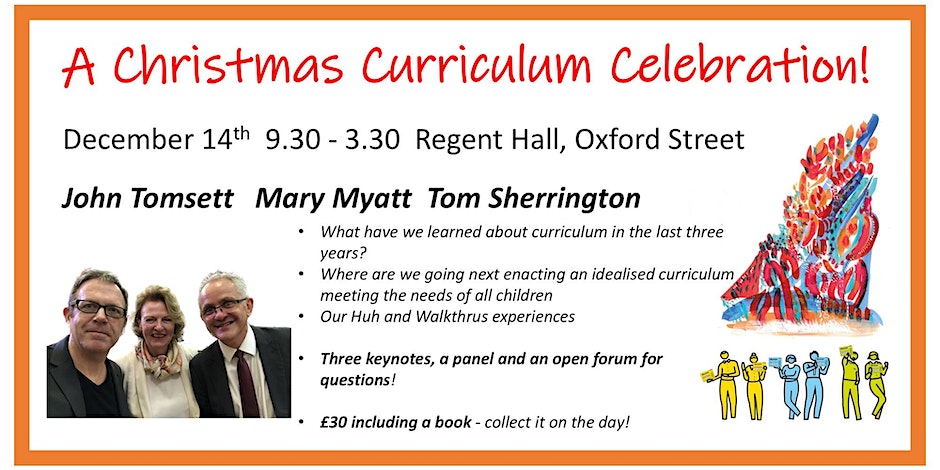In my career, I have had just two original ideas. One is the concept of Janus-faced sentences which are incredibly useful when answering, amongst other things, the writing question on the AQA English Language GCSE Paper 2. The other is to name the series of books on the curriculum I have written with Mary Myatt after Huh, the Egyptian god of endlessness, creativity, fertility and regeneration (we even have an online Academy for teachers named after our curriculum deity!).
My lack of originality has not been a problem, however, because there are lots of people who, over a long period of time, have had a wealth of illuminating insights into how to teach so that pupils learn. In the last 13 years I have honed my understanding of classroom craft according to what I have learnt from those expert practitioners and philosophers.
Earlier this year I catalogued the most influential insights in a post entitled, This much I know about… the principles of curriculum planning in action. Over the next few weeks, in a series of short essays I will exemplify in more detail the following ten key insights, and explain why I think they are so important to progressing pupils’ learning:
- “Opportunity cost” is the most important principle for people working and learning in schools. (Dylan Wiliam)
- Curriculum is the complex interplay between content, adaptive teaching and assessment. If any one of these three curriculum pillars is out of kilter, the curriculum falls over like a badly made three-legged stool. (Becky Allen)
- It is the enacted curriculum that matters most. (Dylan Wiliam)
- For each topic, decide what pupils NEED to know and what it would be NEAT for them to know, and shape your curriculum planning accordingly. (Dylan Wiliam)
- We must have a rudimentary understanding of how learning happens if we are to design teaching which helps pupils learn. (Dr Anita Devi and numerous others)
- Inclusive teaching – that is teaching where every pupil has to engage with what is being taught and think hard about it – is the aim. If you leave students out because of your anxiety about their anxiety, you’re no use to them. You’re not carrying them; you are leaving them behind. (Tom Sherrington)
- You have to teach in a way that convinces pupils to become part of a community of learners; the important question is “How, do we encourage children to acquire the knowledge?” not “Have they got the knowledge?”. (Michael Young)
- When teaching pupils with additional needs, presume competence. (Shelley Moore)
- Adaptive teaching rests upon the teacher noticing, in-the-moment, whether pupils have learnt what has been taught; it is about noticing when pupils are finding the learning hard or easy, and then being bothered to do something about it. (Ben Newmark & Margaret Mulholland)
- If you’re unsure about what to include in your curriculum content, conduct the William Morris test: only include it if it is either useful or beautiful. (Mary Myatt)
On 14 December, Mary Myatt, Tom Sherrington and I will be in London, talking about what we have learnt over the years about the curriculum. The event is called: Curriculum Masterclasses: A Christmas Celebration! It is only £30 (to cover costs) and John Catt Education have thrown in a free book of your choice from the range of books the three of us have published. You can book a ticket here. Come and join us!


